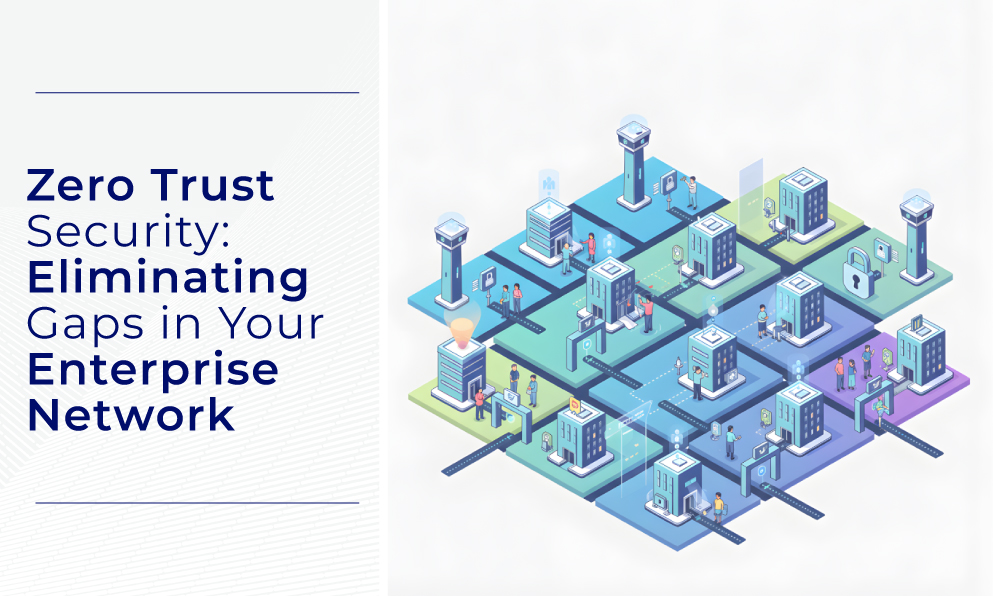Introduction
Cloud computing has evolved from basic hosting to intelligent, self-optimizing ecosystems. In 2025, AI-native cloud architectures are redefining enterprise infrastructure. Unlike traditional cloud, AI-native cloud integrates artificial intelligence at every layer, enabling predictive scaling, automated DevOps, real-time anomaly detection, and continuous MLOps.
Gartner (2024) predicts that over 60% of enterprise workloads will operate on AI-enhanced cloud systems by 2026. BJIT leverages these architectures to deliver secure, scalable, and intelligent cloud solutions for clients across the U.S., Europe, and Japan.
1. Defining the AI-Native Cloud
AI-native cloud integrates AI models directly into the operational fabric of the cloud, enabling autonomous optimization, continuous learning, and proactive decision-making.
1.1 Architectural Layers
The closed-loop architecture ensures telemetry continuously improves AI models for better operational intelligence.
2. AI-Native Cloud vs. Traditional Cloud
The intelligent layer reduces human intervention, shortens time-to-market, and optimizes costs in alignment with FinOps principles applied by BJIT.
3. Core Components of an AI-Native Cloud Architecture
3.1 Kubernetes Orchestration and Automation
Kubernetes remains central to AI-native cloud orchestration. BJIT enhances it with AI-driven operators for predictive scaling, pod pre-warming, and resource prefetching.
This architecture reduces latency, optimizes costs, and improves cluster efficiency.
3.2 MLOps and Continuous AI Delivery
AI-native clouds rely on MLOps to manage the ML lifecycle integrated with DevOps pipelines. BJIT deploys automated pipelines using Kubeflow, MLflow, and Jenkins/GitLab CI.
These pipelines enable continuous model improvement, ensuring compliance and reliability.
3.3 Observability and Self-Healing
Observability becomes a cognitive feedback system:
BJIT integrates AIOps frameworks for real-time monitoring and incident management.
3.4 Security and Zero-Trust Automation
AI-native cloud security relies on zero-trust models enforced with AI algorithms:
This approach ensures global compliance with ISO 27001, SOC 2, GDPR.
4. Multi-Cloud and Hybrid Cloud Engineering
BJIT designs multi-cloud AI orchestration across AWS, Azure, and GCP for optimized performance, cost, and compliance.
BJIT’s AI-driven orchestrator selects the optimal cloud region based on telemetry, cost, latency, and sustainability metrics.
5. Data Engineering and Cloud Storage
BJIT implements data mesh architectures with AI integration:
6. Edge Intelligence and Cloud Continuum
Edge nodes perform local AI inference, syncing with cloud models:
This reduces latency, preserves privacy, and enables federated learning for sensitive workloads.
7. Sustainability and Energy Optimization
BJIT leverages AI to reduce energy consumption and optimize carbon footprint:
Sustainability intelligence reduces TCO and supports ESG compliance.
8. Future Outlook
Key trends in AI-native clouds:
- Cognitive MLOps: Auto-retraining models with meta-learning
- AI-Governed Infrastructure as Code: Automated policy enforcement
- Quantum-Enhanced Workloads: Hybrid quantum-AI computation
- Federated Compliance Clouds: Privacy-preserving cross-border AI
BJIT is positioned to guide enterprises in building intelligent, autonomous, and compliant cloud ecosystems.
About BJIT Cloud Services
BJIT is a global IT solutions provider specializing in AI-native cloud infrastructures for enterprise clients in the U.S., Europe, and Japan. With expertise in multi-cloud environments (AWS, Azure, GCP), BJIT helps organizations modernize legacy systems, accelerate digital transformation, and achieve intelligent automation at scale.
BJIT’s cloud services include:
- Kubernetes & DevOps Automation: Deploying AI-driven orchestration and CI/CD pipelines that reduce operational overhead, optimize compute resources, and ensure consistent application performance.
- MLOps & Continuous AI Delivery: Designing automated pipelines for ML model training, deployment, monitoring, and retraining, enabling enterprises to operationalize AI seamlessly.
- Hybrid and Multi-Cloud Orchestration: Intelligent workload placement across public, private, and edge cloud environments to maximize performance, cost efficiency, and regulatory compliance.
- Zero-Trust Security & Compliance Automation: AI-enhanced security frameworks, identity governance, and real-time compliance monitoring to meet global standards such as ISO 27001, SOC 2, and GDPR.
- Sustainable Cloud Infrastructure: AI-based energy optimization and carbon-aware scheduling to minimize environmental impact while lowering total cost of ownership.
With BJIT’s engineering-led approach, enterprises gain a cloud ecosystem that is self-optimizing, resilient, and intelligent, enabling faster innovation cycles, reduced operational complexity, and enhanced business agility. Partnering with BJIT ensures organizations not only adopt the cloud but also harness the full potential of AI-native infrastructure to drive measurable business outcomes.
References (APA 7th Edition)
- Gartner. (2024). Top Strategic Technology Trends for 2025. Gartner Research.
- Marr, B. (2024, November 4). The 7 Revolutionary Cloud Computing Trends That Will Define Business Success in 2025. Forbes.
- IDC. (2024). AI-Driven Cloud Infrastructure Forecast 2024-2028. IDC White Paper.
- Google Cloud. (2025). MLOps: Continuous Delivery and Automation Pipelines in Machine Learning. Google Cloud Documentation.
- Microsoft Azure Architecture Center. (2024). Designing Cloud-Native Applications. Microsoft Learn.
- Red Hat. (2024). Kubernetes AI Operators for Predictive Scaling. Red Hat Engineering Blog.










